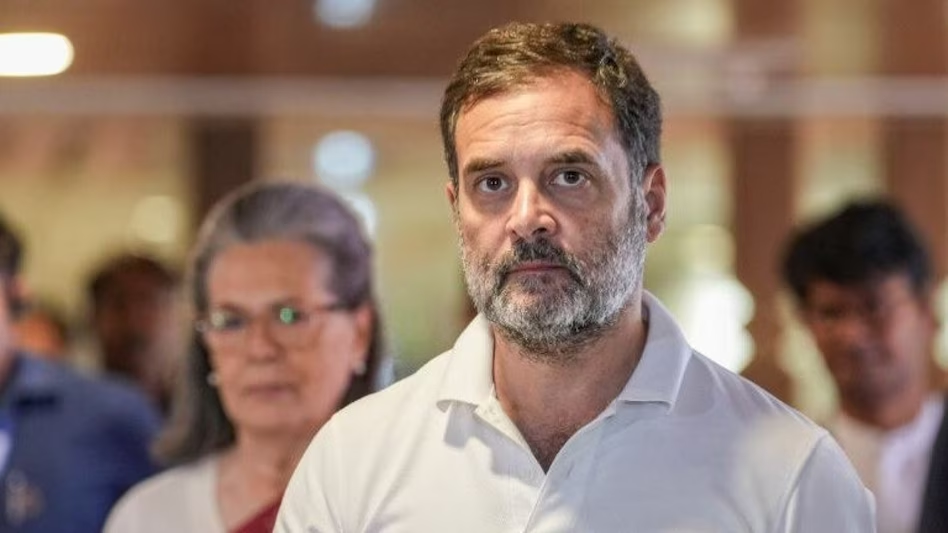
National Herald Corruption Case: A Detailed Overview
The National Herald corruption case is one of the most high-profile legal battles in India, involving prominent political figures such as Rahul Gandhi and Sonia Gandhi. The case revolves around the acquisition of Associated Journals Limited (AJL), the publisher of the “National Herald” newspaper, by a company called Young Indian Limited. Allegations of financial misappropriation, breach of trust, and misuse of political influence have made this case a subject of intense legal scrutiny and political debate.
Background of the National Herald Case
The roots of the case trace back to 1937 when India’s first Prime Minister, Jawaharlal Nehru, established Associated Journals Limited (AJL) to publish the “National Herald” newspaper. The publication played a crucial role during the Indian independence movement, advocating nationalist causes and countering British propaganda.
However, over time, AJL faced financial difficulties, and by 2008, the “National Herald” ceased publication. In 2010, a new entity, Young Indian Limited, was incorporated as a not-for-profit company. Rahul Gandhi and Sonia Gandhi hold a majority stake in Young Indian, jointly owning 76% of its shares.
Allegations in the National Herald Case
The controversy began in 2012 when BJP leader Subramanian Swamy filed a private complaint alleging financial irregularities in the way Young Indian acquired AJL’s assets. The key allegations include:
- Interest-Free Loan from the Congress Party: Swamy alleged that the Indian National Congress (INC) extended an interest-free loan of approximately ₹90 crore to AJL to help revive the “National Herald.”
- Acquisition of AJL by Young Indian: It was claimed that Young Indian acquired AJL’s shares for a nominal amount, effectively transferring valuable real estate assets to Young Indian.
- Misappropriation of AJL’s Assets: AJL owned real estate properties in multiple cities across India, valued at approximately ₹2,000 crore. Swamy argued that the transaction was an attempt to misappropriate assets under the guise of financial assistance.
- Breach of Trust: Since Young Indian was a not-for-profit company, it was alleged that its acquisition of AJL’s assets violated financial regulations and amounted to criminal breach of trust.
Legal Proceedings and Developments
The legal battle officially commenced in June 2014 when a Delhi court took cognizance of the complaint and issued summons to Sonia Gandhi, Rahul Gandhi, and other individuals associated with Young Indian. The case has since witnessed multiple legal proceedings, including:
- Delhi High Court’s Observations: In 2015, the Delhi High Court denied relief to the accused and noted that there was prima facie evidence suggesting that Young Indian was created to acquire AJL’s assets.
- Income Tax Department’s Investigation: The Income Tax Department investigated whether the transactions between Young Indian and AJL had resulted in tax evasion.
- Enforcement Directorate’s (ED) Involvement: The ED launched an inquiry under the Prevention of Money Laundering Act (PMLA), investigating whether the case involved money laundering and fraudulent financial activities.
- Attachment of AJL’s Properties: In 2019, the ED provisionally attached AJL’s properties under anti-money laundering laws, arguing that they were acquired illegally through Young Indian.
Defense by Rahul Gandhi and Sonia Gandhi
The accused leaders, particularly Sonia Gandhi and Rahul Gandhi, have denied all allegations, asserting that:
- The Loan Was for Revival Purposes: The Congress Party maintains that the loan was extended to AJL with the sole intention of reviving the “National Herald” newspaper and not for any financial gain.
- Young Indian is a Non-Profit Organization: Rahul Gandhi and Sonia Gandhi argue that Young Indian is a not-for-profit company and, as per its structure, none of its members can personally profit from its assets.
- No Personal Gain Was Involved: The Congress Party has consistently maintained that no personal enrichment occurred, and the entire issue is a politically motivated attack by the BJP to malign the opposition leaders.
Current Status of the National Herald Case
As of the latest legal proceedings, the case remains ongoing with several pending investigations and court hearings:
- Continued ED Scrutiny: The Enforcement Directorate is actively investigating potential violations of financial and money laundering laws.
- Judicial Deliberations: The matter is being heard in various courts, including the Delhi High Court and the Supreme Court, where appeals and counter-appeals continue.
- Political Ramifications: The case continues to be a focal point in political debates, with the BJP accusing the Congress of corruption and financial misconduct, while the Congress dismisses the allegations as baseless and politically motivated.
Political and Public Impact
The National Herald case has had significant political implications:
- Impact on Congress Leadership: Given that the case directly involves Sonia Gandhi and Rahul Gandhi, it has placed the Congress leadership under immense pressure.
- Public Perception: The case has influenced public opinion, with supporters and critics taking opposing views on whether it constitutes financial fraud or a politically motivated case.
- Legal Precedent: The case has also raised critical legal questions regarding corporate governance, financial ethics, and the accountability of political parties in financial dealings.
Conclusion
The National Herald corruption case remains one of the most closely watched legal and political battles in India. With multiple legal agencies, including the Enforcement Directorate and the Income Tax Department, involved in the investigation, the final outcome is yet to be determined. Whether it results in legal convictions or political vindication for the accused remains to be seen, but its impact on India’s political landscape is undeniable.
Reference Websites
- Enforcement Directorate (ED) Official Website: https://www.enforcementdirectorate.gov.in
- Income Tax Department of India: https://www.incometaxindia.gov.in
- Delhi High Court: http://delhihighcourt.nic.in
- Supreme Court of India: https://www.sci.gov.in
- News Sources: The Hindu, The Indian Express, Times of India, Hindustan Times